There have been many adaptations of Robert Louis Steven’s famed novella “The Strange Case of Dr. Jekyll and Mr. Hyde” – from the most noteworthy version starring Frederic March to the comedic take by Jerry Lewis in The Nutty Professor – but this 1941 film, starring Spencer Tracy, we get a movie that was more of a direct remake of the Frederic March version than it was an adaptation of the original story.
From director Victor Flemming, the man behind such successful outings as Gone With the Wind and The Wizard of Oz, Hollywood launches another version of the tragic story of Dr. Henry Jekyll (Spencer Tracy), a respected and brilliant scientist who becomes consumed by his curiosity about the dark side of humanity and then embarks on a dangerous experiment in an attempt to separate the good and evil within himself. His aim is to create a potion that will allow him to indulge in his wicked desires without compromising his reputation or endangering those around him, basically, to allow himself a life of debauchery without the consequences.
All you need is a nice laboratory.
The opening conflict of this movie deals with the medical community scoffing at Jekyll’s theory of "separating the good and evil aspects of human nature" and chief among these skeptics is Sir Charles Emery (Donald Crisp), but the real problem here is that he is also the father of Jekyll’s love interest Beatrix (Lana Turner), and when Sir Charles declares his displeasure of Jekyll’s insane notions he takes his daughter off on a vacation. Which is something you'd expect from an aristocratic pompous windbag. Unfortunately, this allows our hero to dive into his work and we know where this is going to end up, and after some failed experiments with lab animals he eventually creates a formula that proves his theory and he unleashes Mr. Hyde onto the world. The problem here is that Spencer Tracy is never fully able to commit to the Hyde persona and the movie suffers greatly from this failing.
Note: When author W. Somerset Maugham visited the set during the filming, he supposedly watched a bit of Spencer Tracy’s performance and asked sardonically, “Which one is he now, Jekyll or Hyde?”
Once Mr. Hyde is out and about the movie follows the basic structure of the 1931 film, with our villain hooking up with dance hall girl Ivy Pearson (Ingrid Bergman), whom Dr. Jekyll had rescued from some random miscreant earlier in the film, and as the toxic relationship kicks into high gear the romance plot between Jekyll and Beatrix is put on hold – with us waiting for her to return so that we can get to our final act with Hyde can going on a murderous rampage – until the plot reaches the expected finale between our villain and the authorities.
“You are under arrest in the name of plot convenience.”
Stray Observations:
• When MGM decided to produce its own version of “Dr. Jekyll and Mr. Hyde” they acquired the rights to the 1931 version and buried it in order to avoid any competition or unfavourable comparison, making it unavailable for viewing for many years. Talk about a dick move.
• Spencer Tracy is one of the all-time great actors but he was miss-cast as a Victorian gentleman, he’s not Keanu Reeves in Coppola’s Dracula bad but he’s simply too American to pull it off.
• Frederic March’s Jekyll suffered from sexual frustration, his father-in-law-to-be was a menacing cock blocker, but in this version, Jekyll seems like your average horny bastard who looks for any excuse to cheat on his girlfriend.
• In this adaptation, we don’t get any brilliant transformation effects as the first two times that he turns into Mr. Hyde all we get are horny hallucinations of Beatrix and Ivy, and then future transformation mostly consist of unconvincing lap dissolves.
• The decision to use minimal make-up effects for Hyde was a bad idea as it made Ivy look like an idiot for not recognizing Hyde as he looks pretty much exactly like Jekyll.
Is this the face of evil?
Spencer Tracy’s version of Hyde comes across as more of a prankster than a true monster, his relationship with Ivy is vicious and cruel to be sure but it’s no where close to what we saw in the 1931 version. We get implied violence but most of what we see is mental cruelty and even though it does eventually lead to murder this take on Hyde simply isn’t scary, and that is a cardinal sin in my book. The story is also harmed by Jekyll’s apparent lack of remorse concerning his creation of Hyde which results in a strange disconnect and makes him decidedly unsympathetic. The motivation for Jekyll’s decision to continue taking the potion is never made clear and this ends up making him seem more like a jerk than a man tortured by hubris and its disastrous side effects. While the film attempts at an exploration of the human psyche, raising thought-provoking questions about the nature of good and evil and the consequences of suppressing one's darker impulses, Tracy’s performance never quite embraces those “darker elements” resulting in more of a watered-down version of Hyde opposed to the one we got from Frederic March.
“Be quiet while I murder you off camera.”
The supporting cast, including Ingrid Bergman and Lana Turner, feel underutilized and their characters lack depth, not to mention the romantic subplot between Dr. Jekyll and Beatrix Emery being weak and coming across somewhat rushed, it could have been developed further to enhance the emotional impact but the script doesn't seem to bother. It should also be noted that Bergman's Ivy is no longer a prostitute but now a simple barmaid – a change mandated by the production code of the time – and while she becomes entangled with Jekyll and Hyde her character is now reduced to a one-dimensional damsel in distress, lacking agency or a compelling backstory. Lana Turner as Jekyll's fiancée is similarly one-dimensional, serving as little more than a plot device to highlight Jekyll's inner turmoil.
What a waste of Lana Turner.
As mentioned, this movie was produced during the reign of the all-powerful production code and thus it was forced to adhere to certain “moral standards” of the times and this restricted the film’s exploration of more provocative and challenging themes which resulted in a missed opportunity to delve deeper into the darkness within the human psyche and thus we ended up with disappointingly diluted narrative. Like the 1931 version, some parts remained relatively faithful to the original source material while still taking some liberties with the narrative, condensing certain aspects of the story for the sake of pacing, and the story suffers for it. On the plus side, the film’s black-and-white cinematography by Joseph Ruttenberg is excellent and adds a nice eerie and atmospheric ambience, capturing the sinister essence of the story, the use of shadows and lighting techniques heightens the suspense and helps to emphasize the stark contrast between Dr. Jekyll’s respectable world and Mr. Hyde’s twisted existence.
"Let's play Hyde and Seek."
Without a doubt, Victor Flemming’s Dr. Jekyll and Mr. Hyde was a blatant attempt at capturing the magic of the 1931 film but with Spencer Tracy’s rather goofy portrayal of Hyde, it never came close to what Frederic March managed a decade earlier. Despite some commendable performances from the supporting cast the film suffers from a weak screenplay, uninspired direction, and a failure to explore the profound themes that makes this story so enduring. This version is a forgettable entry in the long list of adaptations and does little justice to the source material, instead of getting a movie that would delve into the darkest corners of human nature we ended up with was a film that didn’t properly convey the heart and soul of Stevenson's timeless tale, making this a remake that has no real reason to exist.
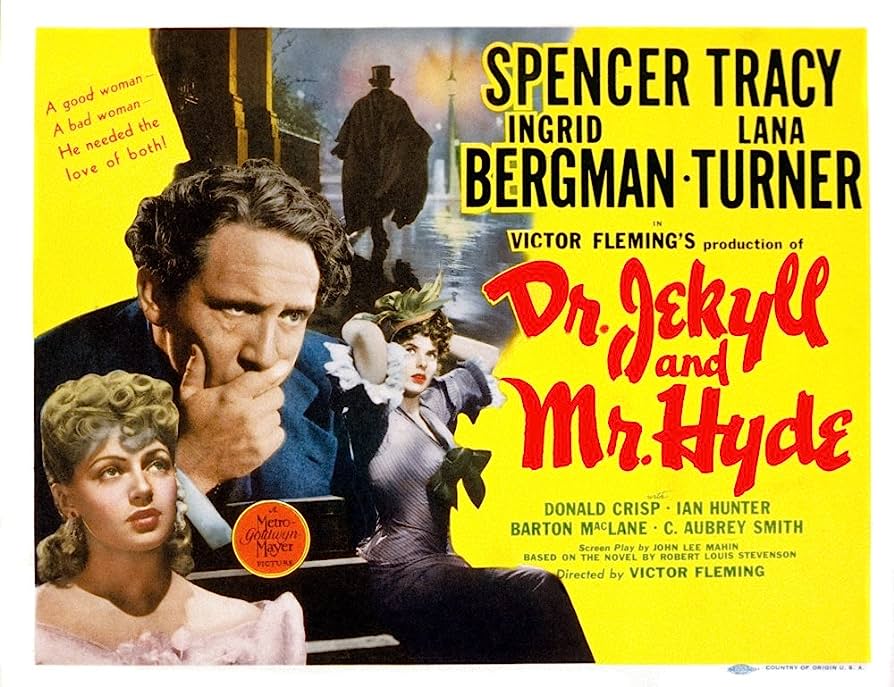
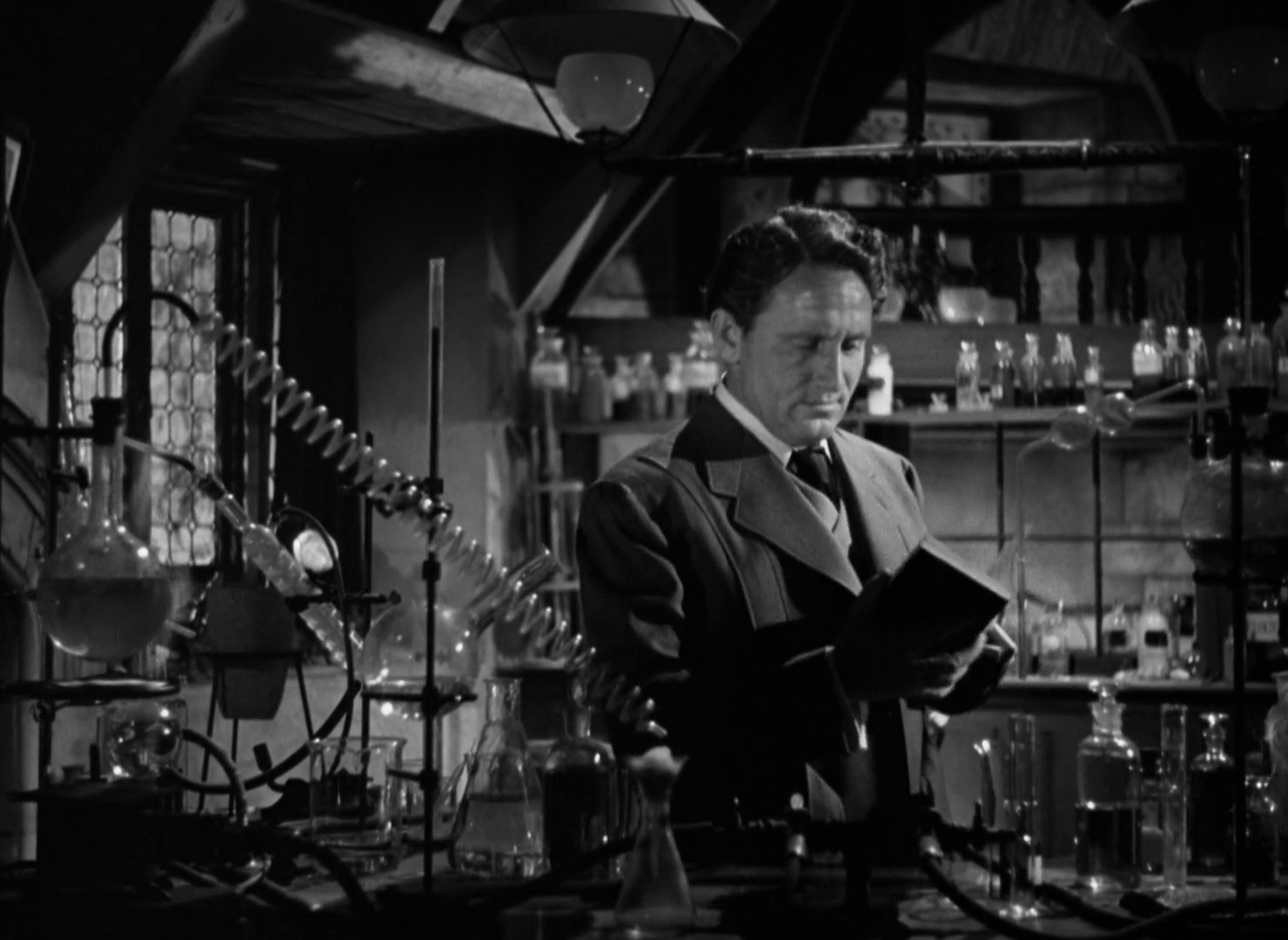
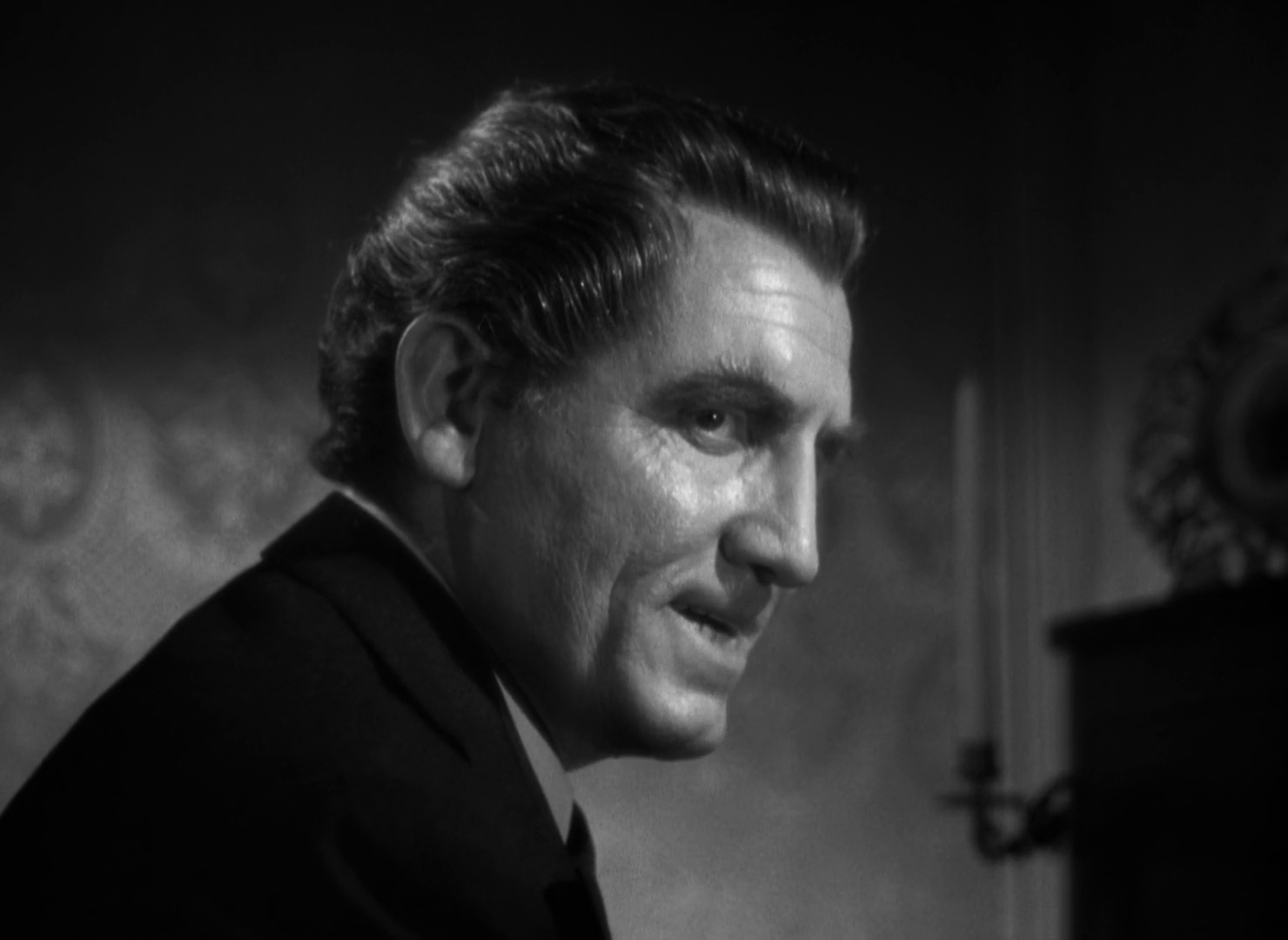
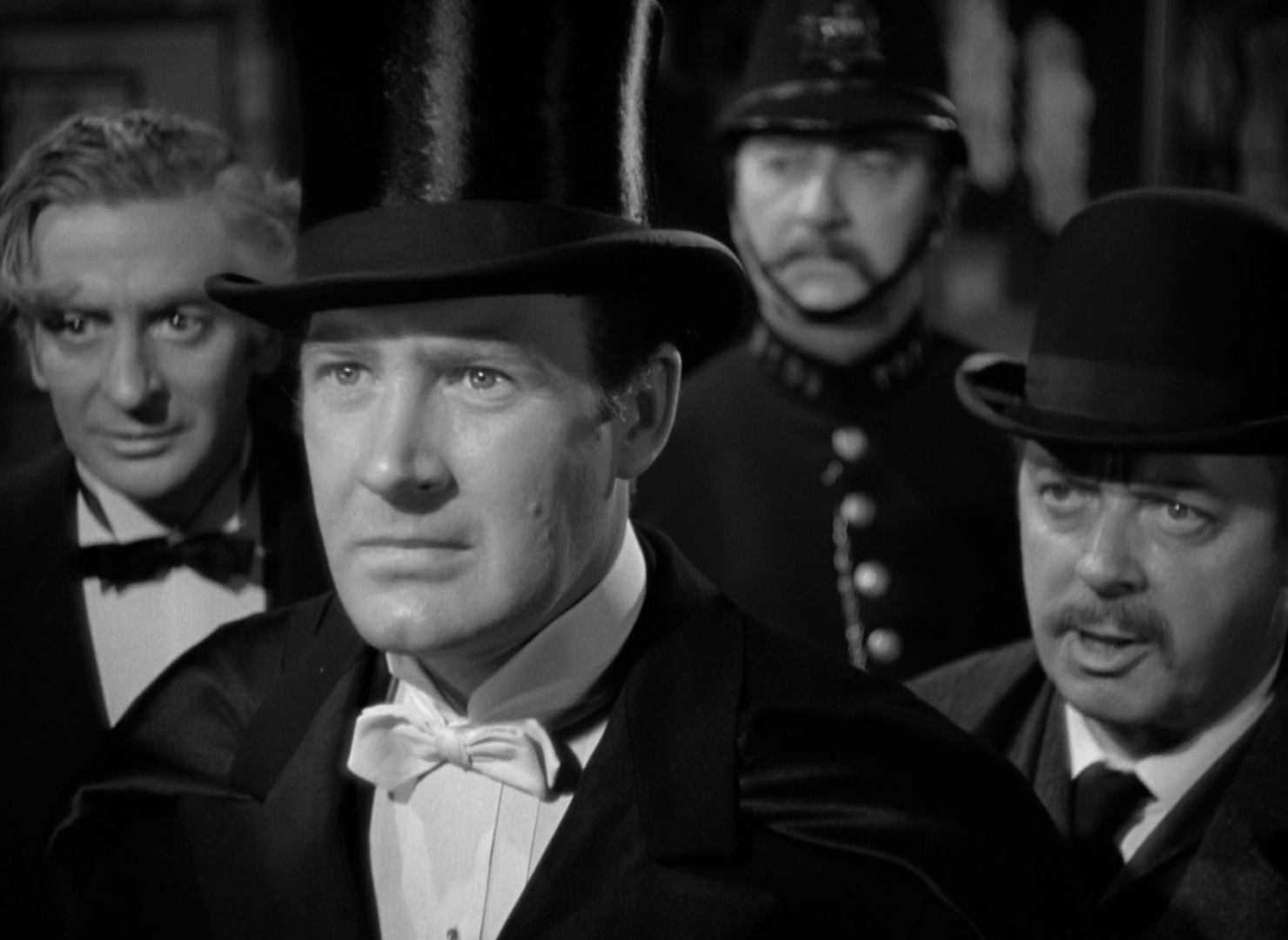
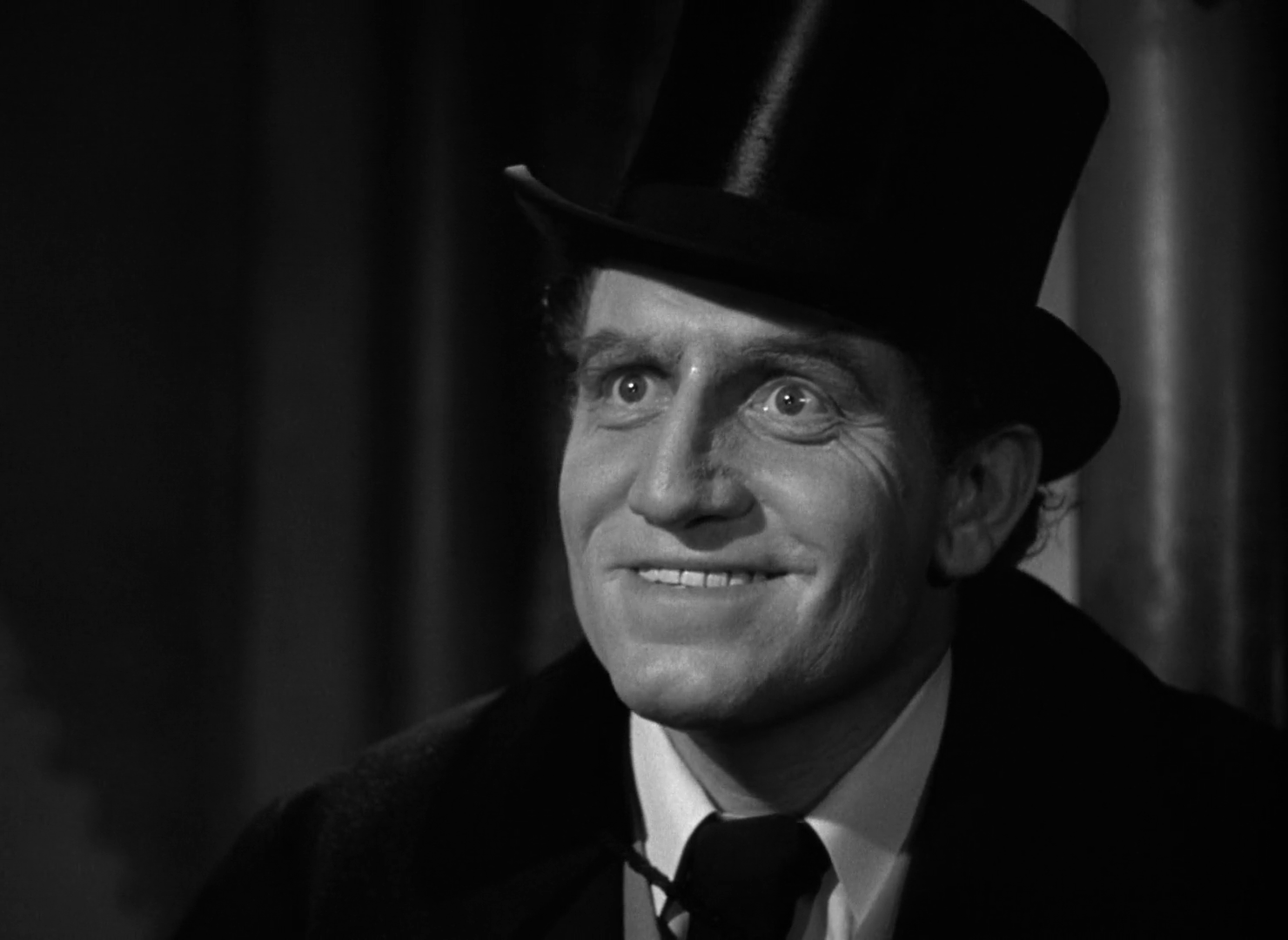
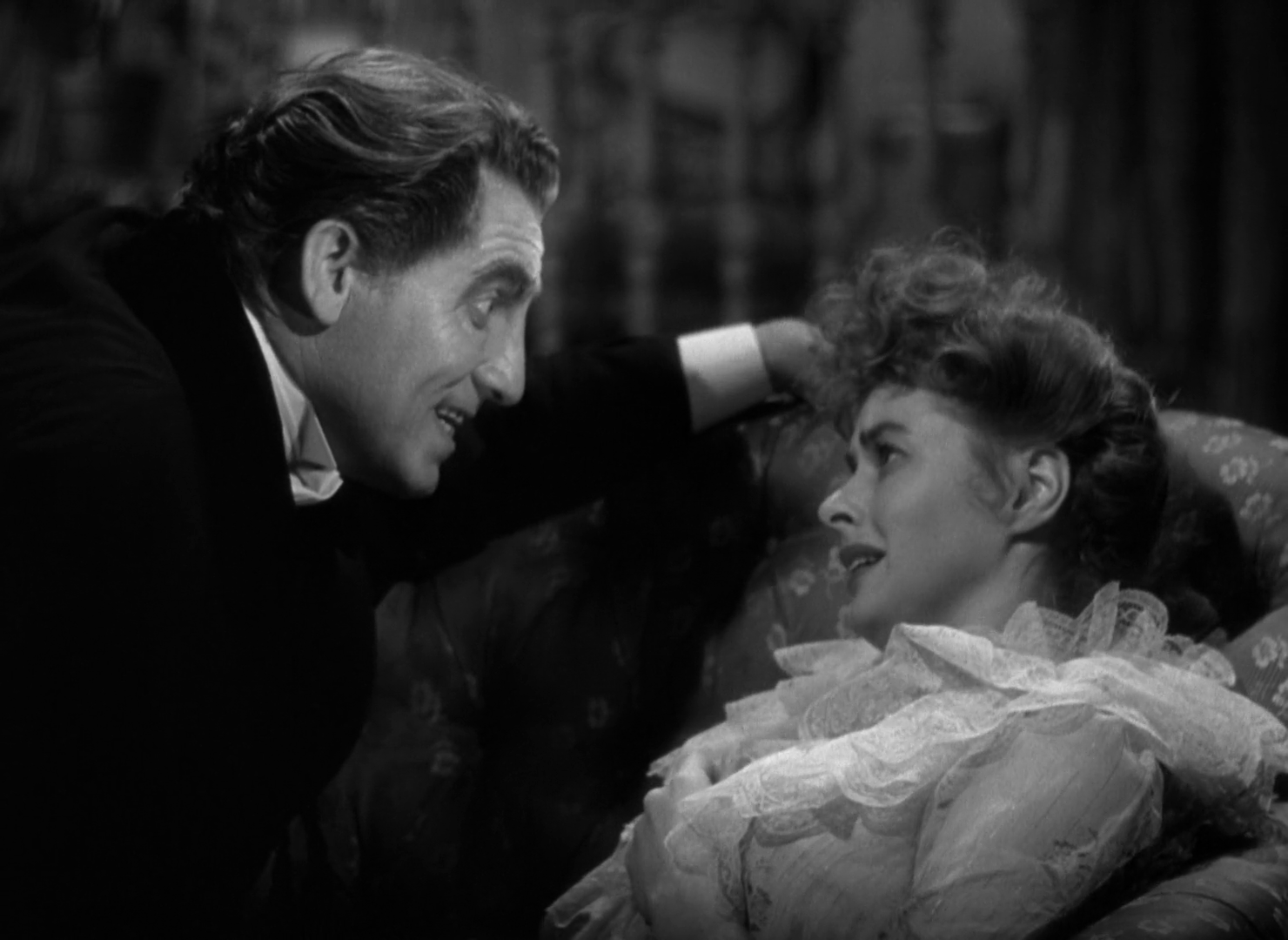
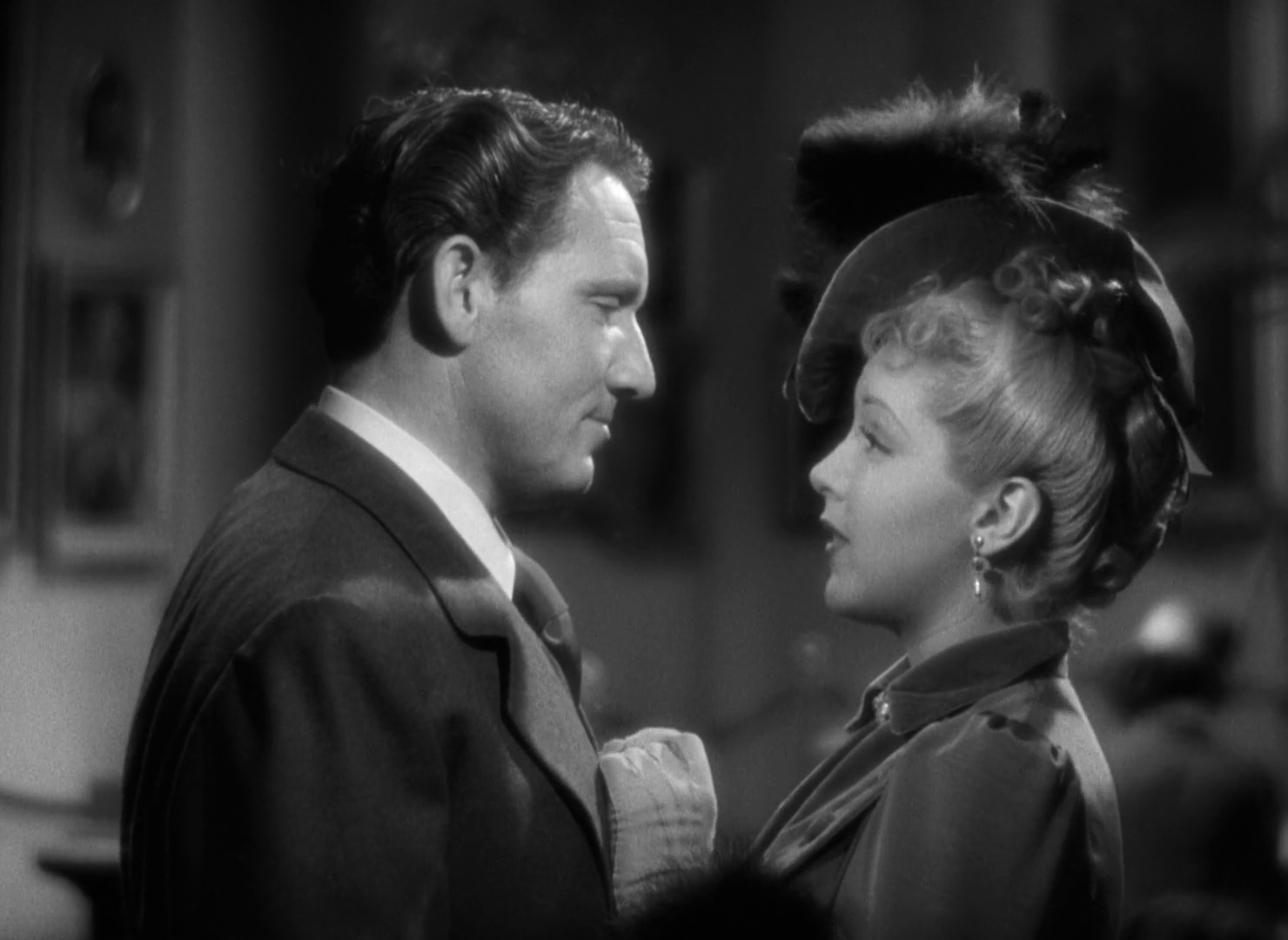
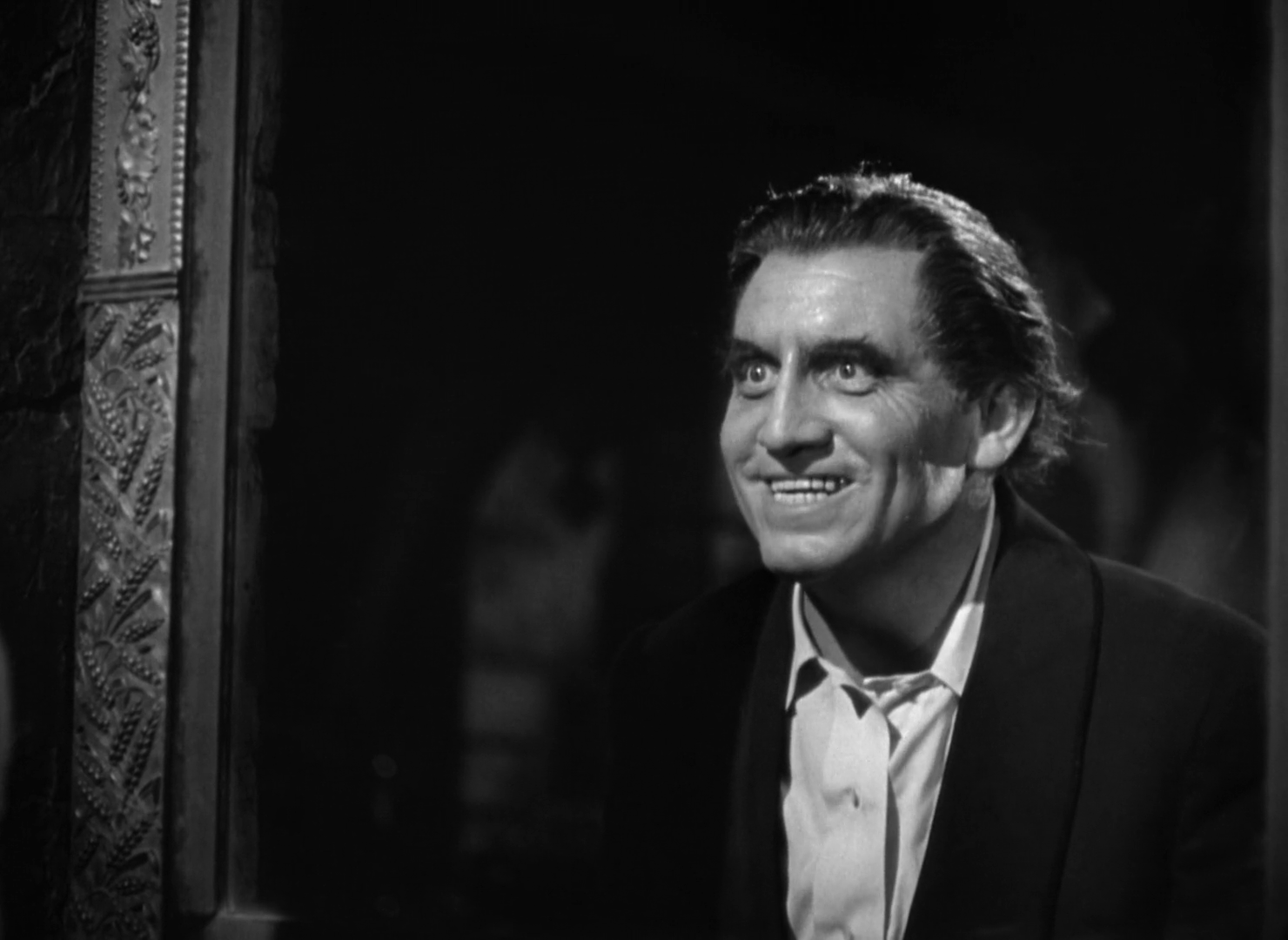

No comments:
Post a Comment